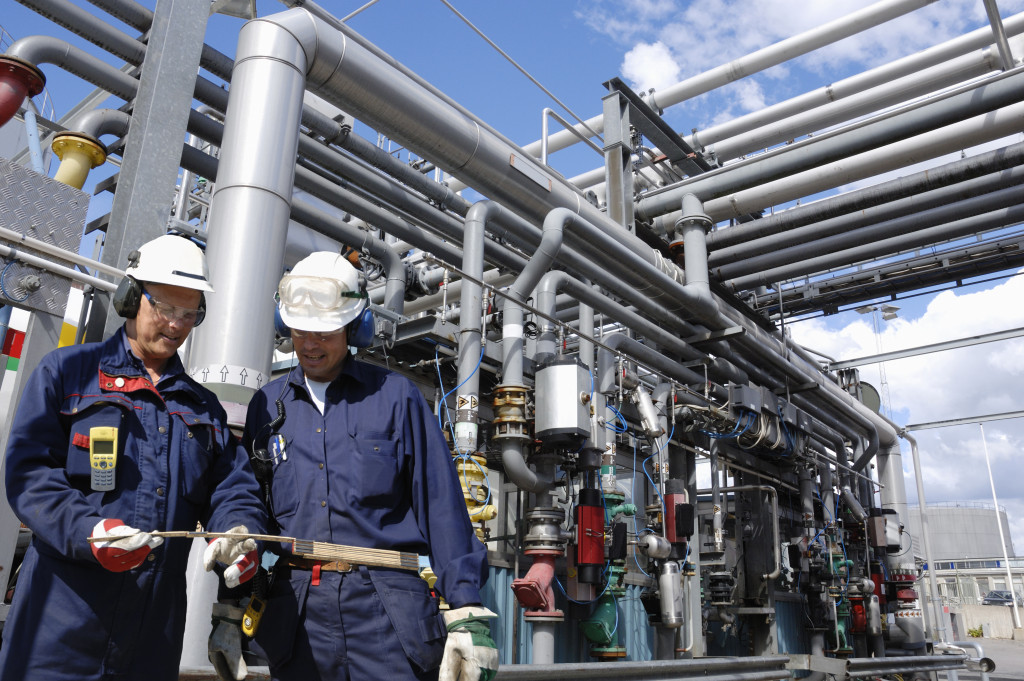- Technological advancements this year will greatly enhance productivity in the industrial sector through automation and AI.
- Employee wellness and flexible work policies are key to attracting and retaining top talent in the future.
- The design of industrial workspaces is becoming more employee-focused, prioritizing comfort and collaboration.
- Environmental sustainability, through recycling, renewable energy, water conservation, and green building design, is a central concern for future industrial businesses.
As an industrial leader, you constantly look for ways to increase productivity and stay ahead of the competition. The fast-paced nature of the industry demands that businesses keep up with technology and adapt to new trends.
This blog will discuss the industrial workplace trends that will impact your business and enhance your productivity in 2023. You will learn about technology, workforce management, the changing landscape of workspaces, and environmental sustainability.
Technology
Technology has always been a game-changer in the industry, and it continues to be so. By investing in technology, employers can streamline processes, optimize the workforce, and boost productivity. In 2023, industrial businesses will continue to explore automation, artificial intelligence, and the IoT (Internet of Things) to revolutionize their workflows.
In doing so, they’ll reduce the overall cost of production, improve quality control, and make their operations more efficient. Just make sure your establishment is ready to implement these new technologies. This means updating your electrical systems to ensure compatibility and secure data transfer. You should also ensure your industrial control panels are in working order to support the advanced technology you’ll be using.
So consider employing the help of a UL-approved panel builder to customize your control panels for optimal performance. They’re certified by the Underwriters Laboratories (UL) to construct and test control panels for safety, reliability, and efficiency. They can implement a UL 508A/698A control panel that meets your industry requirements and boosts productivity.
Workforce Management

In 2023, a significant proportion of the workforce consists of millennials and Gen Z, both of which bring a different set of expectations to the table. Compared to the previous generations, they prioritize flexibility, work-life balance, and diversity.
Businesses that embrace these changes and invest in their employees’ overall well-being will lead the way in hiring and retaining top talent. Moreover, transparency, continued learning and development, and opportunities for growth and advancement will be paramount to the success of businesses that take care of their workforce.
Changing Landscape of Workspaces
For many years, industrial offices and factories were rather bare bones, with a focus on functionality and bare necessities. However, the changing landscape of workspaces with more focus on comfort, collaboration, and engagement.
The workplaces will be designed specifically for the employees to ensure they can work to their full potential and leverage cutting-edge technology, stylish design, and a well-lit environment. Along with this, customization will play a crucial role in accommodating a dynamic, agile workforce with ever-changing demands.
Environmental Sustainability
Environmental sustainability is a crucial factor that businesses consider in the 21st century as the world grapples with the effects of climate change. A focus on sustainability, resource efficiency, and renewable energy sources will continue to be important in the years to come. Here are four practices that your business can adopt to be more environmentally sustainable this year:
Recycling
Recycling helps to reduce the amount of waste sent to landfills and incinerators. It also saves energy, water, and resources when companies reuse materials instead of creating new products from scratch.
Renewable Energy

Renewable energy sources such as solar, wind, and hydroelectric power are clean, safe alternatives to traditional fossil fuels. Not only do they reduce carbon emissions, but they also help to save money in the long run.
Water Conservation
The industrial sector is one of the largest water consumers, so it’s important to reduce water usage wherever possible. Simple changes such as installing low-flow fixtures and using efficient irrigation techniques can make a big difference in conserving this valuable resource.
Green Building Design
Green building design can reduce energy costs, improve air quality, and provide a healthier workplace for employees. Employers can incorporate features such as natural lighting, rainwater harvesting systems, and thermal insulation to make their offices more sustainable.
Not only do these practices save the planet, but they can also reduce expenses in the long run.
The industrial workplace of the future is evolving rapidly and is about so much more than just technology or production. It’s about embracing changes in the workforce, transforming workspaces, and prioritizing environmental sustainability.
Companies that keep up with these trends and make strategic investments will not only enhance productivity but also create a healthier, happier, and more sustainable environment for their employees and the world. Stay ahead of the curve by implementing these 2023 trends in your industrial business, and you’ll be well on your way to an exciting future. Remember, the only constant thing is change, and those who adapt quickly to it are the ones who thrive.
